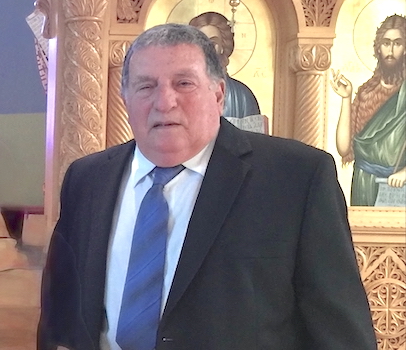FAA reauthorization would implement better screening processes
Published 7:00 am Thursday, April 28, 2016
Americans should be able to travel knowing that strong security measures have been put in place to protect them. The Federal Aviation Administration (FAA) reauthorization bill, which passed the Senate on April 19, would offer this assurance.
Improved PreCheck, Drone Guidelines
Although the safety of passengers is always a primary concern, airport security has become an especially urgent priority in recent weeks, following the devastating terror attacks in Brussels. The FAA bill would address potential vulnerabilities at U.S. airports with better screening and security processes. Among these precautions would be improvements in the vetting of airport employees, increased enrollment in the TSA PreCheck program to streamline security lines, and heightened security for international flights to the United States. The bill’s cybersecurity measures would seek to thwart threats that could impact air navigation systems.
Recent news that a drone collided with a British Airways passenger jet in London reaffirms the need for new standards on unmanned aircraft. The FAA bill would pave the way for the development of these guidelines as well as Mississippi’s continued leadership in this new chapter of the aerospace industry. Mississippi State University has been selected as the FAA’s National Center of Excellence for Unmanned Aircraft Systems and will lead critical research on the integration of drones into commercial airspace.
Enhanced Passenger Rights
Passengers are likely to notice a difference in their traveling experiences because of the FAA bill. A columnist for The Washington Post called it “one of the most passenger-friendly Federal Aviation Administration reauthorization bills in a generation.” For example, airlines would be required to issue refunds if checked baggage is lost or if passengers do not receive the services they paid for, such as early boarding. In addition, families with young children would not have to pay extra to sit together.
As a member of the Commerce Committee, I worked to get the FAA bill ready for the Senate floor. I authored a measure to enable the use of unmanned aircraft by electric utilities in times of emergency – when it is too dangerous to send first responders into impacted areas. I also supported a rule requiring pediatric equipment and medication in aircraft medical kits. Both of these provisions were included in the bill passed by the Senate.
Results for the American People
The bill now moves to the House, where prompt action is expected to meet the July 15 deadline for reauthorization. The FAA bill would be an important accomplishment for the 114th Congress, which has already passed a number of bipartisan measures, including a multiyear highway bill and long-term tax relief. It is proof that the Senate continues to work for the American people – not by imposing more taxes or regulations but by enacting sensible reforms in the best interest of consumers and public safety. Reaching bipartisan agreement in the Senate on the FAA bill took time and deliberation, including several committee hearings and dozens of amendments, but this is how the system is supposed to work.
By Senator Roger Wicker





